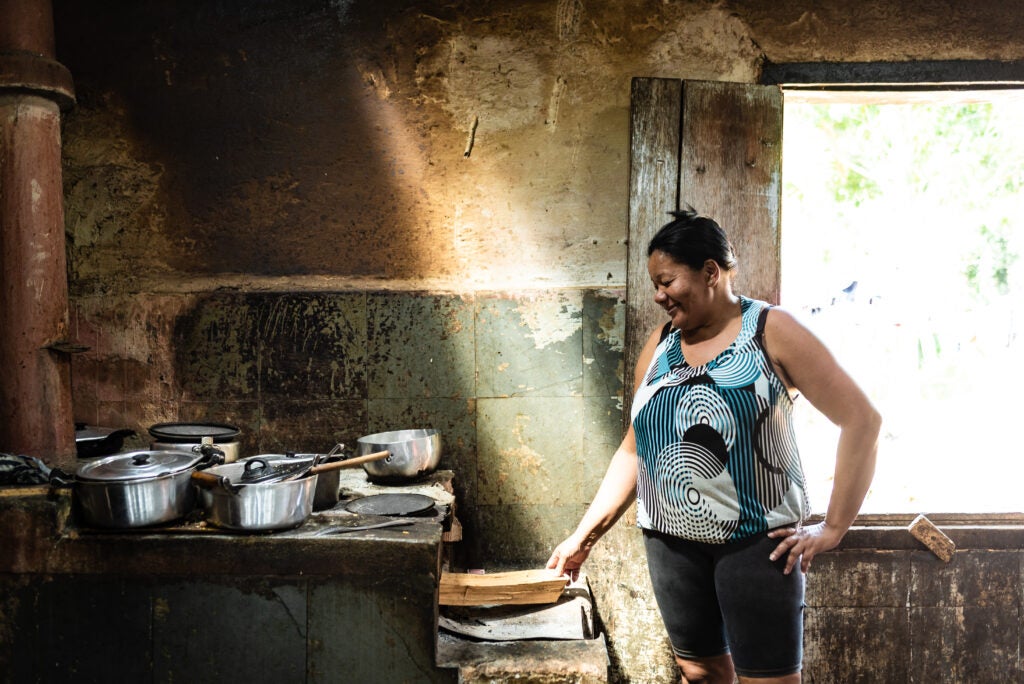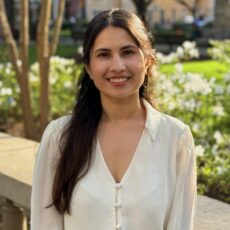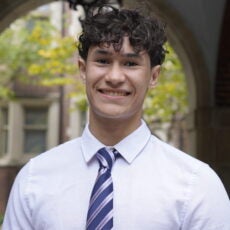Kleinman Summer Fellowships
Energy Education in Action
Learn about global energy challenges, work alongside the world’s leading experts, and research energy topics of interest to you.

Kleinman Birol Fellowship
In 2016, the Kleinman Center for Energy Policy partnered with the International Energy Agency to support graduate students interested in spending a summer working on energy policy research. This prestigious fellowship provides a designated position to a highly motivated Penn student with experience working on energy, environmental, or economic issues.
The International Energy Agency (IEA) is an intergovernmental organization committed to advancing the security of energy supply, economic growth, and environmental sustainability through energy policy cooperation. The IEA is based in Paris, France and operates as an autonomous body within the framework of the Organization for Economic Co-operation and Development.
Meet the 2025 Kleinman Birol Fellow:
Alina Ho
2025 Kleinman Birol FellowAlina Ho is a student studying systems science and engineering in the School of Engineering and Applied Sciences. She is the 2025 Kleinman Birol Fellow and the International Energy Agency and a member of the Kleinman Center Student Advisory Board.
Kleinman PEA Fellowship
The Philadelphia Energy Authority (PEA) is an independent municipal authority focused on issues of energy affordability and sustainability for Philadelphia. The Kleinman Center funds a fellowship that enables a graduate student to work on energy policy-related issues at PEA such as project and pipeline development and developing and implementing new financial tools such as accessible loan products and resources to accelerate the adoption of energy efficiency and renewable energy in Philadelphia.
Meet the 2025 Kleinman PEA Fellow:
Vanshika Arora
2025 Kleinman PEA FellowVanshika Arora is the Summer 2025 PEA/PGCC Fellow at the Kleinman Center for Energy Policy. She is pursuing the Master of Environmental Studies program (MES ’25), focusing on finance and energy.
Kleinman Apollo Fellowship
An exclusive opportunity for a Penn undergraduate student to work at private equity firm Apollo Global Management as a part of Apollo’s Climate Private Equity group focused on climate-related investments. Apollo targets deploying $50 billion in clean energy and climate capital over the next five years and sees the opportunity to deploy more than $100 billion by 2030.
Meet the 2025 Kleinman Apollo Fellow:
Sebastian Ortiz Salazar
2025 Kleinman Apollo FellowSebastian Ortiz Salazar is a sophomore studying Finance, ESGB-BEES, and Mathematics. Salazar is the 2025 Kleinman Apollo Fellow.
Kleinman Energia Fellowship
Energia is an international network focused on promoting gender equality, women’s empowerment, and sustainable energy access. This fellowship opportunity in Europe, Africa, or Asia results from a collaboration with this year’s Carnot Prize recipient Sheila Oparaocha, international coordinator and program manager at Energia.
Meet the 2025 Kleinman Energia Fellow:
Oindriza Reza Nodi
2025 Kleinman Energia FellowOindriza Reza Nodi is a Master of City Planning student concentrating in Smart Cities at the Weitzman School. Nodi is the 2025 Kleinman Energia Fellow.
“Every member of my team was from a different country and working in such an international atmosphere changed my perspective on solving energy problems.”
—Shrey Mehta, 2024 Kleinman Birol Fellow
Student Fellowship Outputs
During your fellowship, you will have the opportunity to have your research published. Read some of the energy policy projects that students have worked on during their fellowships.

Addressing Energy Insecurity in Philadelphia’s Affordable Multi-Family Housing with C-PACE Financing
The aging energy systems of Philadelphia’s affordable multi-family homes contribute to pervasive energy insecurity. This digest explores using and tailoring the existing financing mechanism, C-PACE, for upgrades that lower utility expenditures of residents in affordable multi-family buildings.

Gender Baseline Assessment of Energy Compacts
One-third of the world’s population lacks access to clean cooking and approximately 733 million people have no access to electricity. A global transition to sustainable energy cannot be achieved unless women are equally included as leaders, partners, and beneficiaries.

Deep-Decarbonization Strategy for India
India is the third-largest emitter of carbon emissions after China and the U.S. and at its current pace is projected to overtake the U.S. by 2030. Kleinman Birol Fellow Khushboo Goel explores.
Working at the IEA means working in the most influential energy organization in the world. The amount of knowledge, experience and exposure in the IEA is amazing.
Yara Albeaini, 2021 Kleinman Birol Fellow




